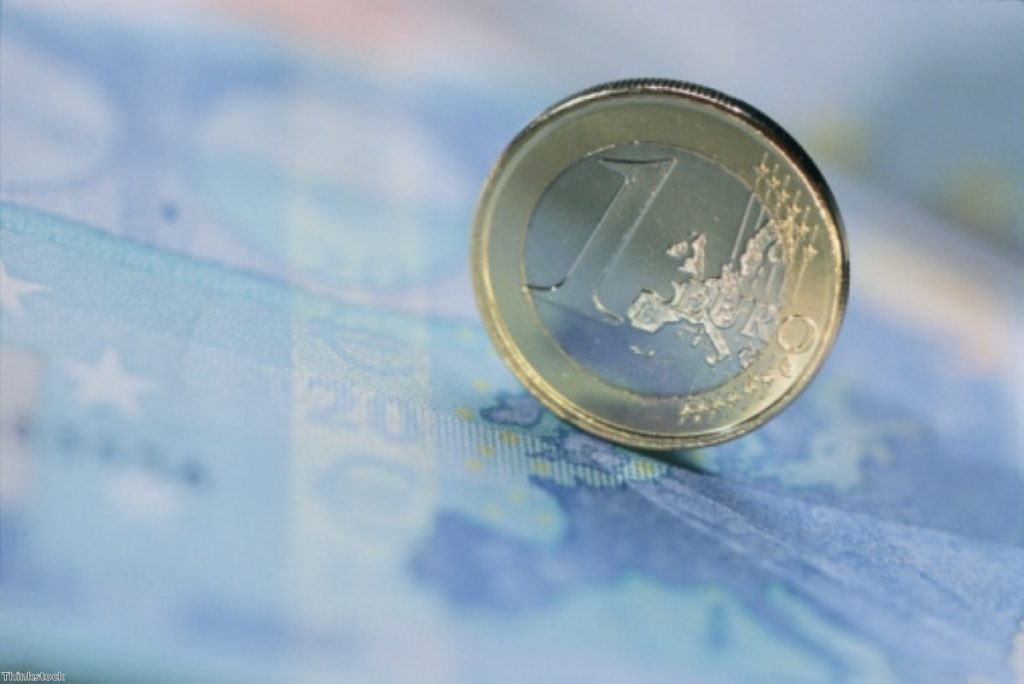Thinking the unthinkable: Treasury admits planning for euro collapse
By Ian Dunt Follow @IanDunt
The Treasury admitted planning for the total collapse of the European currency today, as events in Greece sent shockwaves around the world.
The demand came as Greek prime minister George Papandreou lost his majority and German and French leaders turned the promised referendum into a vote on eurozone membership.
Leading eurosceptic and Tory backbencher Peter Bone was granted an urgent question in the Commons this morning, just as David Cameron was landing at the G20 meeting in Cannes.


"Does the government have a comprehensive contingency plan for when the euro collapses?" Mr Bone asked.
Finance secretary Mark Hoban said the government was "prepared for any eventuality".
He added: "You would expect that every good government would have plans in place for a whole range of eventualities."
The extent to which the Treasury believes the currency cannot be saved was also reflected in an answer Mr Hoban gave when asked if the UK would ever join the euro.
"I don't think there is any intention for us to join the euro at a time when it is breaking up," he replied.
The comments forced chief secretary to the Treasury Danny Alexander to rush to the TV studios to play down the comments.
"We have contingency measures in place for all sorts of eventuality. This one's extremely unlikely," he told the BBC.
There were widespread attacks on European leaders' interference with Greece's affairs from across the usual political divides.
"The condemnation of the Greek people's right to hold a referendum is entirely incorrect," left-wing Labour backbencher Jeremy Corbyn said.
"The people of Greece have suffered greatly. It's entirely wrong for eurozone leaders to impose a government of national unity on the Greeks."
Home affairs committee chairman Keith Vaz commented: "George Papandreou is a decent and honourable man and if he wishes to put it to the Greek people that is a matter for them."
Mr Bone argued that dropping out the euro would allow Greece to devalue its currency.
"Why is it government policy to deny Greece a way out of its economic crisis?" he asked.
Mr Hoban went further than previous government statements in condemning the Greek decision to hold a referendum.
The position of the Greek prime minister has added to the "uncertainty and instability in eurozone", he argued.
Asked if Downing Street agreed with the German and French position that the Greek referendum on the austerity package should be turned into a poll on European membership, Mr Hoban added: "It's a matter for the Greeks. What's important is they stick to the agreement."
As the session continued, the scene at the G20 became increasingly chaotic.
A planned press conference between Jose Barroso and Herman van Rompuy being cancelled, after talks with Nicolas Sarkozy, Angela Merkel, Silvio Berlusconi and Jose Zapatero failed to reach a conclusion.

